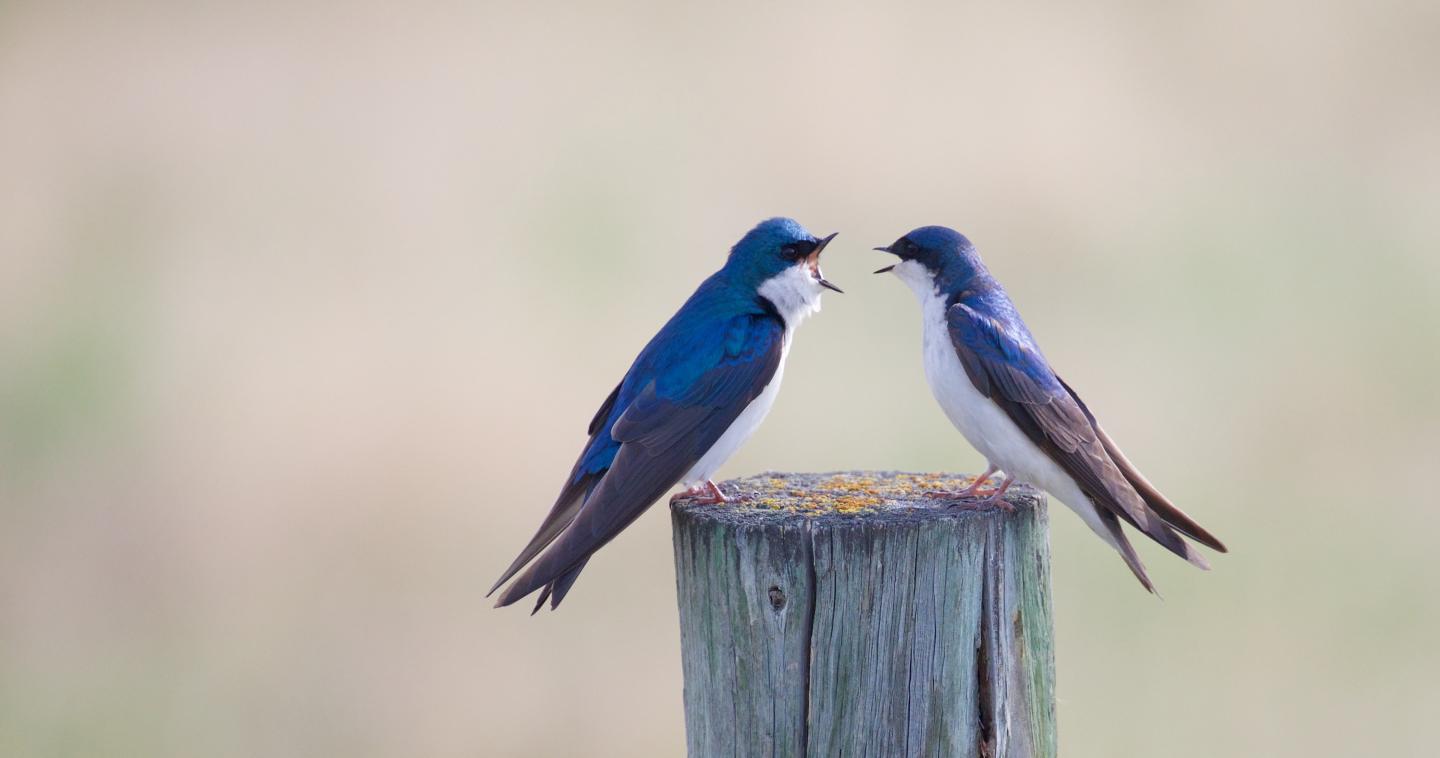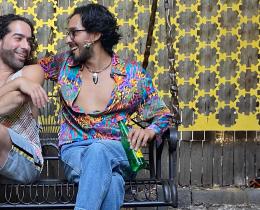Omega: How can attachment theory, which is about how we relate to our primary caregivers as a child, help us understand our adult relationships?
Stan: Our attachment styles get hard-wired into our brains when we are young. If you understand your attachment style it can help you see how you move toward and away from others and how your partner does the same. When you see what you’re doing, you can work with it. We call the three main forms of attachment the island, the anchor, and the wave (traditionally known as avoidant, secure, and resistant, respectively). These are general categories; people are island-ish, anchor-ish, and wave-ish, but it can be useful to know that if you’re island-ish and your partner is wave-ish, you are coming from different perspectives.
Omega: What does it mean to be a wave?
Stan: If I am a wave, I came from a family culture where a parent was overwhelmed, depressed, mentally ill, distracted, or just preoccupied with their own life. As a child, I was rewarded for taking care of my parent’s emotional state, so I stayed close to them. But that parent was inconsistent with me—they weren’t always there when I turned around, and if I moved toward them they might get angry with me or punish me. Because of this I grew up to feel uncertain about depending on others. I became very good at taking care of others but I’m afraid to expect anything.
As an adult, I end up sending a lot of screwy messages. I might say, “Come here,” and when you do, I push you away before the next shoe can drop. That’s called negativism, and it’s a very frustrating dynamic in a relationship. As soon as you respond to me, I retreat. If I can be aware of this and know that this behavior is hostile to the relationship, then I can take responsibility for it. If my partner understands this about me, and how to work with me properly when I start acting this way, it is like cats and dogs learning to work with each other—it’s possible.
Omega: Is an island someone who doesn’t like being in relationships?
Stan: If I were an island, I grew up in a family culture where performance and appearance came first, before relationships. I had to take care of the self-esteem of at least one of my parents, so I didn’t get my own needs met. I was rewarded for being independent and not being needy, so I learned to keep to myself, afraid that if I get into a relationship, that person will co-opt me the same way my parents did and only use me for their own prestige. My biggest fear as an island is of losing myself. I can be in a relationship, and I might even need to be, but I need to take responsibility for my behaviors that I do when I’m afraid, like distancing. If I have someone who understands me and what I’m afraid of, they can work with that.
Omega: And what about the anchor?
Stan: Anchors tend to have more resilience and are less afraid of or alarmed by being intruded upon or being left. Because they’re not worried about being interrupted or abandoned, they are more fluid and easier to be with. They have fewer defenses up because they don’t need them. They’re more relaxed, have a better sense of humor, aren’t as stressed, and don’t use as many resources.
Omega: Being an anchor sounds more enjoyable and appealing. Are we all looking to become an anchor?
Stan: Anchors can be born that way, but it is also possible to develop the characteristics of an anchor through therapy and practice. But it’s more important to be who you are and accept your partner for who they are. Islands, waves, and anchors can all have secure, functioning relationships. When anyone is in a secure environment, their development moves forward and they become more complex, nicer people.
Omega: Can you give an example of how two different styles would interact?
Stan: Tracey and I are an example—she was a lot more put together than I was when we met.
Tracey: I'm more secure and I have some tendency to be an island, but Stan was very much an island. Because of the work we do, I was able to really understand him. He will sometimes sit at the computer and lose track of time. I don’t take it personally if he does that or if he’s an hour late or something. I just know that if I want to be in this relationship I have to know how to work within the system that is Stan Tatkin. By creating the space for him and not making any of that wrong, I allow him the opportunity to live and to own his patterns.
Stan: She's actually not giving herself enough credit! She knows what to do to get me to stop something or to do something. She doesn’t just sit around waiting for me; she’ll correct my behavior. If I’m doing my island thing on the computer, she’ll say, “Five more minutes and then come to bed.” And in five minutes she’ll say, “Come to bed now.” This kind of statement is the kind of thing an island can hear because it’s not a resource demand. It’s not like she’s saying, “Why do you always do this? How come you don’t want to come to bed with me?” It’s a direct command, which is clear.
Omega: What if you were an island and a wave together in the same scenario, where someone was spending too much time on the computer?
Stan: If the island is on the computer, since the wave does not want to command or demand, they will wait and get angrier and angrier and eventually do something the island will regret, like getting into a long conversation about why they aren’t getting attention or being heard. The island, anticipating this conversation, is going to stay far away to avoid being trapped. The wave only calms down with their partner and the island calms down by themselves, so you also have a clash in how they do self-care. Each of them sees the other’s behavior as not just annoying, but as a threat. What we can do is help each of them understand this and find a way to get what they want without activating the other person’s fear. That’s totally doable.
Tracey: It is totally doable once they understand what each person needs. Perhaps they agree to have a 2-minute conversation for the wave and then they go their separate ways to accommodate the island. Once you know how each other works, it’s not hard. And it takes less time than being stuck in the old behaviors.
Omega: Our notion of romantic love is that it just magically all works if it’s the real thing. But you’re saying it requires work.
Stan: What we're talking about actually has nothing to do with love. People think we’re talking about love, but we’re not. We’re talking about people's adaptations to their childhood environment and how as an adult they're reacting to memory in a way they think is taking care of themselves. They don't realize that by reacting in their usual way, they're doing something to the other person. If both people understand their behavior as motivated by self-protection, they can shift from being focused on themselves to being focused on the relationship, which is what will make it work for the long run.



